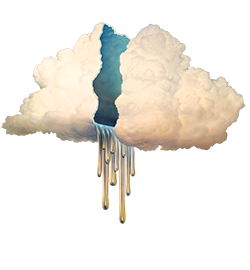Poets & Writers Magazine welcomes feedback from its readers. Please post a comment on select articles at pw.org, e-mail editor@pw.org, or write to Editor, Poets & Writers Magazine, 90 Broad Street, Suite 2100, New York, NY 10004. Letters accepted for publication may be edited for clarity and length.
Letters
Feedback from readers
“Earth: Ground Yourself in Purpose” (January/February 2024) by Laura Spence-Ash caught my attention and my heart. I related most especially to her recounting of feedback she received in a workshop that nearly derailed her writing. In Spence-Ash’s case, the feedback that the story had “too many points of view” and there was “no possibility for the protagonist to change” became for her a stumbling block, which fortunately was just a temporary delay. While workshops and readers can certainly play an important part in a story’s realization, the opposite is often true, when the writer struggles with feedback and often lets the project die. I have been in workshops populated by fledgling writers who seem to love to hear themselves hold forth without considering the impact of their opinions. After one such workshop meeting where I was the recipient of what seemed to be thoughtless input, the member approached me a week later and said he hoped his feedback wouldn’t cause me to stop writing. Luckily for me it didn’t. In Spence-Ash’s case, Will Allison, contributing editor at One Story, offered another way of thinking about character and story, by asking whether it is the character or the reader who changes. I think we are changed by what we read. I revel when a character digs out of difficulty and triumphs. It’s almost as if I, the reader, am the one who triumphs. In Novelist as a Vocation, Haruki Murakami writes: “That person [the reader] and I are connected. I get the sense that deep down…my roots and that person’s roots are linked. I feel we are connected, the real sense that nourishment is passing back and forth.’’ Nourishment. Connection. Thank you, Laura Spence-Ash, for persevering, for listening and returning to the story you had to write. Who knows how many have been nourished and connected by it.
Helen O’Neil
Charlestown, Massachusetts
I would like to offer a different opinion on mask requirements at conferences (“Conferences in the Age of COVID” by Jonathan Vatner, January/February 2024). I would not go to a conference that required masks at this point in the pandemic. I get incessant hot flashes when I wear a mask for more than a short period of time, and I lose my voice and [have asthma attacks] from trying to project from behind a mask. We talk a lot about being equitable in relation to COVID precautions. But many people struggle to hear what masked others are saying, many midlife women experience debilitating hot flashes from masks, and those who need glasses struggle to see while masked. Not to mention that it is difficult to have an intimate, emotionally resonant experience, as one might in a writing workshop, when everyone is behind a mask. Before vaccines I was gung ho about masks. KN95 masks work very well for those who are more vulnerable to severe infection. It could be years before we know how to prevent or cure long COVID, and we cannot expect everyone to mask until we get there.
Rebecca Rose-Langston
Northampton, Massachusetts
Kudos on the diversity reflected in “Performing the Future: Our Nineteenth Annual Look at Debut Poets” (January/February 2024) by India Lena González, although not so much on the ages represented. You couldn’t find a debut poet older than forty-seven to write about? How about a section on poets and writers over sixty who are just now successfully launching their careers?
Arya F. Jenkins
Struthers, Ohio
The editors respond:
We hope you’ll enjoy our our ninth annual 5 Over 50, forthcoming in the November/December 2024 issue. We’ve spotlighted forty debut authors over the age of fifty, including many over the age of sixty, in this feature since 2016.
[Corrections]
Robin Kelley’s name was misspelled in “Agents & Editors” (March/April 2024) by Vivian Lee. The e-mail address for the Get Lit! Festival was misprinted in Conferences and Residencies (March/April 2024); it is getlit@ewu.edu.








